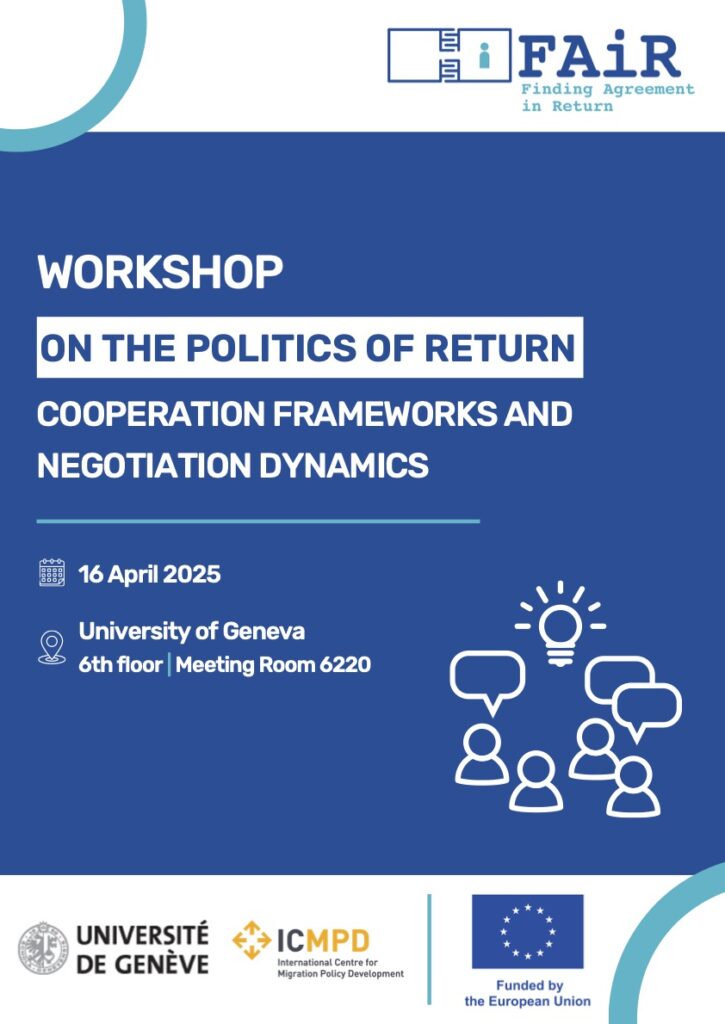By Frowin Rausis
The FAiR project recently convened an international stakeholder workshop in Geneva to strengthen the dialogue between academic research and policy practice on return diplomacy, and to jointly reflect on policy recommendations
Titled “Politics of Return: Cooperation Frameworks and Negotiation Dynamics”, the workshop brought together researchers and practitioners—including representatives from European and non-European states, the European Union, think tanks, and international organizations. The event was jointly organized by the University of Geneva, which hosted the gathering, and the International Centre for Migration Policy Development (ICMPD).
The workshop served as a validation platform for FAiR’s ongoing research, allowing participants to connect scholarly insights with the practical experiences of those working in the field. A key focus of the dialogue was the role of norms in shaping return diplomacy and in developing cooperation frameworks that are both sustainable and mutually beneficial.
Participants explored both intra-state and inter-state cooperation dynamics, discussing how internal governmental structures and coordination can influence external negotiation processes. Several core insights emerged from the discussions:
- Return migration is shaped not only by asymmetries in state interests, but also by the underlying norms and beliefs of both partners—factors that can either enable cooperation or pose significant barriers
- Legal frameworks offer structure and procedural clarity, yet lasting and legitimate cooperation on return often depends more on trust-building and the ability to identify shared ground
- Mutual understanding and trust-building may be undermined by elevated political expectations and the growing politicization of return diplomacy
This exchange helped refine the FAiR project’s understanding of institutional practices and highlighted the value of integrating diverse stakeholder perspectives. These insights are essential for establishing stable and mutually beneficial cooperation in return diplomacy.
The FAiR project will continue to engage with stakeholders and foster informed, balanced dialogue aimed at developing fair and legitimate return policies.



